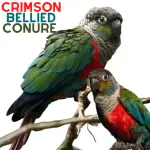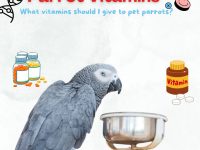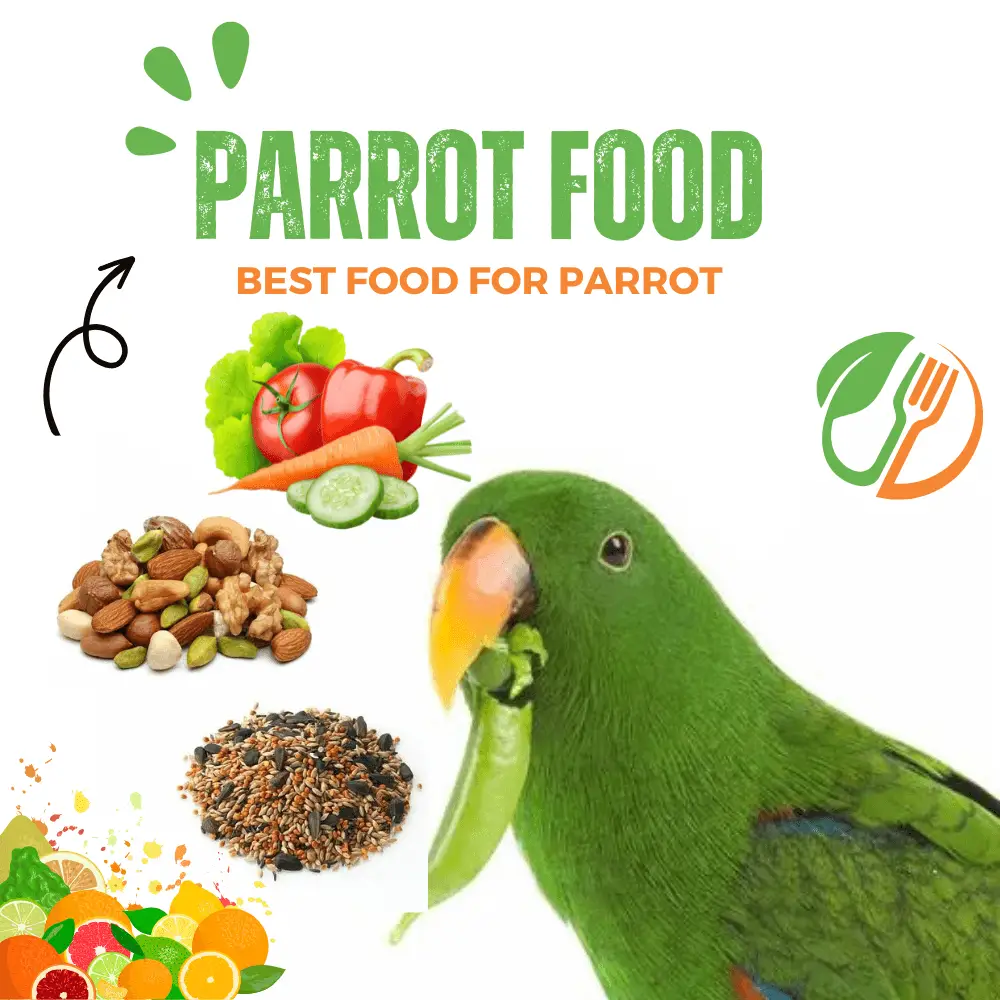
Parrot food: By adopting a pet parrot, you agree to give it the best possible nutrition, adapted to its needs. The parrot is of course no exception to this rule! If this bird attracts you, you will discover that it needs specific food so that it does not suffer from deficiencies. Here is what is the best parrot food.
The parrot is a tropical bird of variable size, belonging to the order Psittaciformes.
The Senegal parrot is one of the smallest (20 to 26 centimeters) while the African grey parrot and the Blue-fronted Amazon can measure up to 36 centimeters. As for the Macaw, it is one of the largest in the world, with a size that can reach 90cm to 1m.
The parrot is playful, curious and a climber and is characterized by a plumage of various colors. Before making the decision to adopt a parrot, be aware that its life expectancy ranges from 40 to 70 years depending on the breed… It is also known for its ability to repeat and imitate sounds (for many parrots).
To stay in good health, the parrot needs a balanced diet adapted to its nutritional needs. Dietary deficiencies can lead to illnesses (respiratory infections, immune system dysregulation) and behavioral problems (pecking).
Other symptoms should alert you: apathy, aggressiveness, and change in the color of the feathers.
The parrot is essentially granivorous and frugivorous, some breeds eat small insects.
Food for parrot
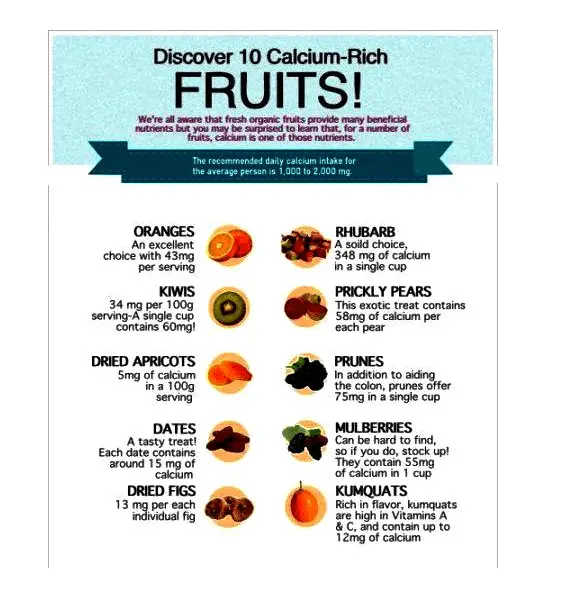
The parrot food consists of several elements. Staple foods are seed mixtures that provide vitamins, minerals, and trace elements. The second type of food to feed a parrot is complete pellets.
As their name suggests, their composition covers all the needs of birds and they, therefore, constitute balanced meals. It is also possible to give your parrot sprouted seeds. In addition to traditional seeds, they provide protein, enzymes, and fiber and are digestible.
Parrots also eat fresh fruits and vegetables! They are a source of fiber, vitamins, and beta-carotene. Certain plants and grasses can also be part of your bird’s meals, as long as they are not chemically treated (no pesticides or insecticides).
Finally, a mineral block or a cuttlebone available to your companion will provide him with calcium and trace elements, beneficial for his bones and his digestion.
The idea is to vary his daily diet by offering him balanced meals so that he does not suffer from any deficiency.
Our advice: all products derived from human food are to be avoided! You will never give your parrot chocolate, caffeinated products, dairy products, processed foods, or leftover cooked meals.
Seed for parrot
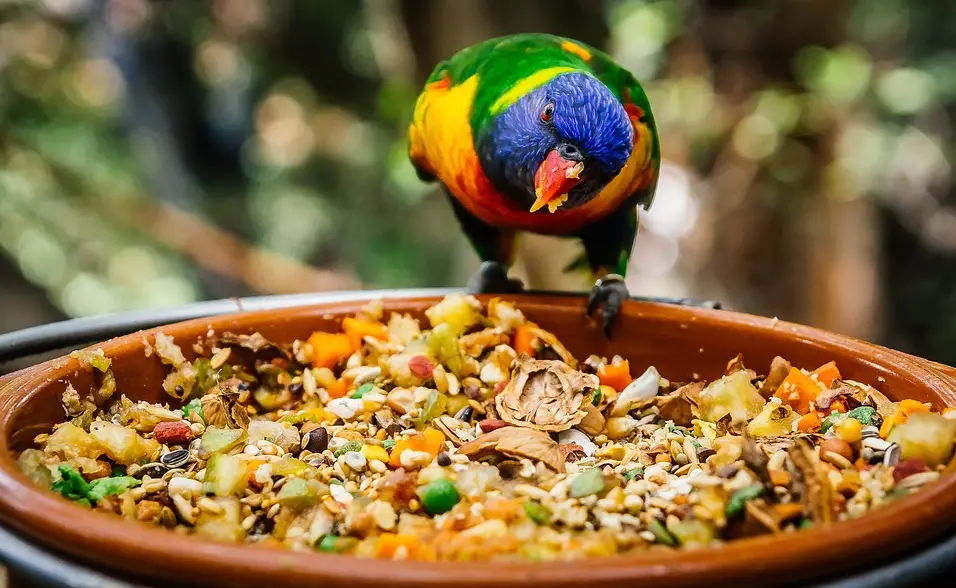
Combine these two types of parrot food! Seed mixes are naturally popular with parrots. When the mixture is well balanced (some seeds are more caloric than others), it makes a good base for a daily meal.
Rich in proteins and lipids, it includes both cereals and oilseeds. Millet is a seed found in all mixtures.
It can be red, yellow, or white. Among the other seeds found in the mixtures: are sunflower, corn, wheat, peanut, oats, buckwheat, milo, hemp, cedar nuts, pumpkin seeds, canary seed, cardy (safflower), and rapeseed.
The seed mix that you give your parrot will therefore be balanced between oilseeds (peanuts, sunflower, rapeseed, etc.) and other less rich ones (oats, canary seed, etc.). It will thus avoid weight gain and deficiencies.
If the mixture does not contain any, it is possible to add walnuts and almonds for their calcium intake and pistachios for vitamin A and iron. All of this of course being unsalted!
On the other hand, the disadvantage of the mixture of seeds is that certain birds tend to sort out the seeds, to keep and eat only those which they like the most!
And it can lead to being overweight if the parrot eats only the richest seeds or deficiencies.
This is why it is useful to supplement the seed mixture with complete granules. If they are sometimes less attractive than seeds for parrots, they nevertheless contain all the nutrients essential to the good health of birds. Their composition is based on cereals, seeds, fruits, vegetables, vitamins, and minerals.
In addition, some brands offer you both types of parrot food directly in one and the same product. This saves you from buying two different packages. These products, therefore, contain a mixture of cereals, seeds, and granules enriched with VAM (vitamins, amino acids, and minerals).
SOURCE: African Grey Parrot Pet
Fresh food for parakeets
Fresh food is also part of your parrot’s daily meals, he needs it. These are mostly fruits and vegetables. Some are authorized and even recommended, while others are not recommended or even prohibited because they are dangerous.
Prioritize vegetables over fruits that have higher sugar content.
Some recommended vegetables: beets, chard, carrots, celery, cucumber, squash (pumpkin, etc.), zucchini, endive, spinach, lettuce, lamb’s lettuce, parsnips, peas, tomato peppers.
Some recommended fruits (in smaller quantities than vegetables): cherry, fresh fig, raspberry, kiwi, blackberry, orange, watermelon, pear, and apple.
Always remove seeds and pits from fruits and vegetables that you give to your parrot. They contain a toxic substance that can make him sick. The lawyer is also to be avoided. Other plants can be part of your bird’s diet: plantain, chickweed, and dandelion.
Prefer organic plants or any case without pesticides and, in any case, wash them well before giving them to your bird. You will cut them into pieces and place them in a feeder attached to the cage.
Our advice: remove fresh food that your parrot has not eaten fairly quickly so that it does not deteriorate in the cage, which could develop bacteria.
SOURCE: African Grey Parrot Pet
Food supplements for parrots
Among the complementary foods that you can provide to your parrot, the bunch of millet is a natural treat appreciated by all birds! You will hang it on the cage and the bird will come and peck it whenever it wishes.
If you have one or more young parrots, give them fortifying mash. Based on eggs and honey in particular, it is rich in protein and fat. It contributes to good growth and good feather formation.
The mash is also useful for adult parrots, during the molting period (usually in spring and autumn). These are times when the parrot needs more energy and is more tired.
You will also attach a cuttlebone or a mineral block to the cage. By pecking it, your parrot will benefit from additional trace elements and calcium.
And don’t forget of course to always leave fresh water available to your bird, in a suitable drinker.

